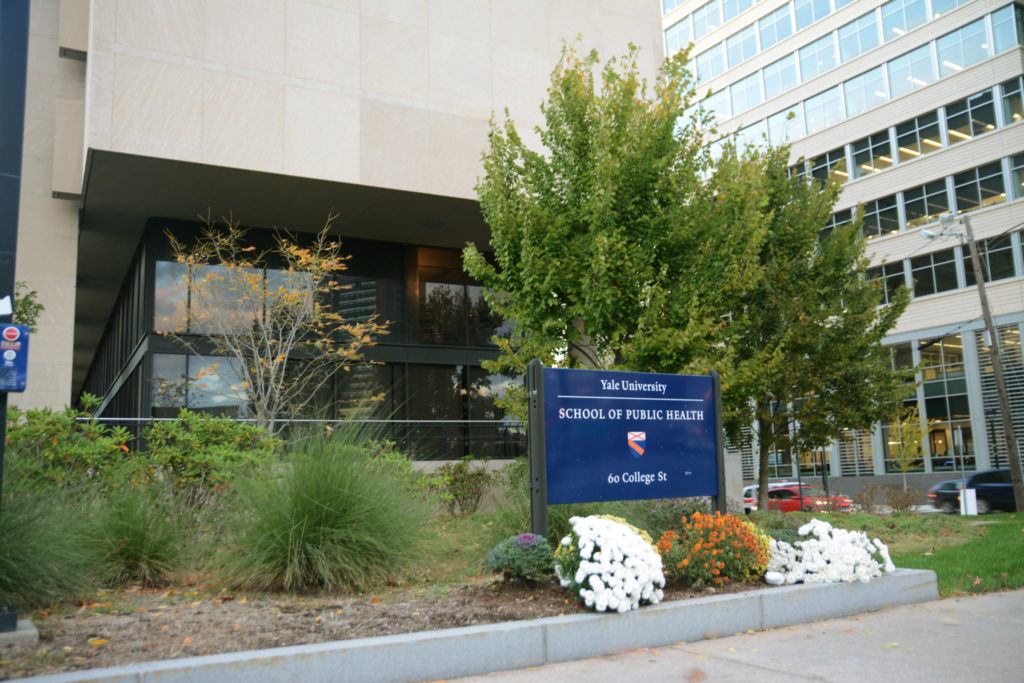
Yale Daily News
As discussion regarding a potential COVID-19 vaccination permeates popular discourse, two Yale professors are answering the question: what comes next?
Yale School of Public Health professor Jody Sindelar and Director of the Yale Institute for Global Health Saad Omer have worked with different organizations to devise frameworks for the allocation of a COVID-19 vaccine, taking concerns of equity into account.
Working with collaborators from the Oxford Health Economics Research Centre, Sindelar authored a paper addressing this issue, which was published in PharmacoEconomics earlier this month. Omer has contributed to the COVID-19 vaccine allocation frameworks created by the World Health Organization and the National Academies of Sciences, Engineering and Medicine, used for policy recommendations for the CDC and state and local governments.
“We also think there’s a disparate view of what is right, and maybe the left and the right have different ideas of what is correct and appropriate,” Sindelar said. “We’re going to gather political data on behaviors to try to understand who thinks what and ask why.”
In the PharmacoEconomics paper, Sindelar and her co-authors assess different evaluation criteria for COVID-19 vaccine allocation, such as individual health benefits, societal health benefits and economic and equity concerns. The paper outlines a decision-making matrix, including these factors, questions about whether or not the vaccine should singularly be available through public distribution or through private markets as well and how citizens should be involved with this process.
Sindelar said that the paper is “just the beginning in laying out our agenda,” adding that the paper would soon be followed up by surveys in 12 different countries. These will be aimed at gauging public opinion of different vaccine allocation measures as well as factors associated with vaccine hesitancy, which may vary based on different cultural norms.
“Even between those very similar countries there is a different attitude,” Sindelar said. “In the United States, we think we have the right not to wear a mask or we have the right to do what we want and maybe the community effort … isn’t as strong as it is in other countries, at least in some subsets of the population.”
The follow-up surveys will consist of two components, according to Sindelar. The first will be questions regarding demographics and socioeconomic status. The second will focus on gauging respondents’ attitudes towards other vaccines, such as the flu vaccine, and their opinions towards possible COVID-19 vaccine allocation policies.
Omer has been working on this issue in multiple capacities.
With the WHO, Omer has contributed to a values-based framework for COVID-19 vaccine allocation. The report provides recommendations to national governments for vaccine allocation, such as ensuring accessibility for low-income individuals and prioritizing higher risk populations. Omer added that these goals are underscored by broader values, such as human respect, global equity and reciprocity.
His other work with the NASEM has resulted in a similar report on vaccine allocation. Along with other experts, he suggests a multiphased allocation scheme for the United States, prioritizing frontline workers and those with comorbidities, as well as individuals in settings such as homeless shelters and prisons who may experience higher risk. He said that equity is a key consideration in such policy recommendations.
“We have to address equity head-on. It has to be implementable,” Omer said. “If I’m doing an academic exercise, I can state the ideal and say that sets the benchmark. But when you’re actually doing this, it has to be practical.”
Sindelar agreed, saying that Black Americans have faced reduced access to coronavirus treatment due to historical inequalities, while undocumented immigrants may have concerns about government-sponsored vaccinations, increasing vaccine hesitancy.
A lack of information about the potential vaccine is one of the greatest difficulties for researchers working on allocation protocols, according to Omer.
He also said that working with researchers harboring a diverse array of expertise in fields such as public health, economics and ethics is useful in developing equitable solutions. He added that having different groups working on these allocation strategies is helpful to the process.
“It’s good to have a marketplace of ideas. With a robust marketplace of ideas, you don’t have groupthink,” Omer said. “But at the end of the day, you have to make recommendations that are not wishy-washy, that are specific, that make choices that can inform a country’s visions … Because in global health, you can’t be too prescriptive, you have to give leeway for national situations and you have to strike that balance, but you can’t be wishy-washy.”
Both experts also stated that public trust in the CDC is integral to an effective vaccine response, especially given the complicated scientific concepts surrounding vaccines.
The CDC appears to be aware of these concerns and claims it will work toward fair vaccine allocation when the time comes.
“We must make every effort to ensure not only that every vaccine is allocated in an equitable fashion, but also that the public also sees that it is equitable, fair and transparent,” Robert Redfield, the director of the CDC, stated in the first committee session of the NASEM Committee on Equitable Allocation of Vaccine for the Novel Coronavirus.
As of Monday, the total number of deaths due to COVID-19 in the world had surpassed one million.
Neha Middela | neha.middela@yale.edu







